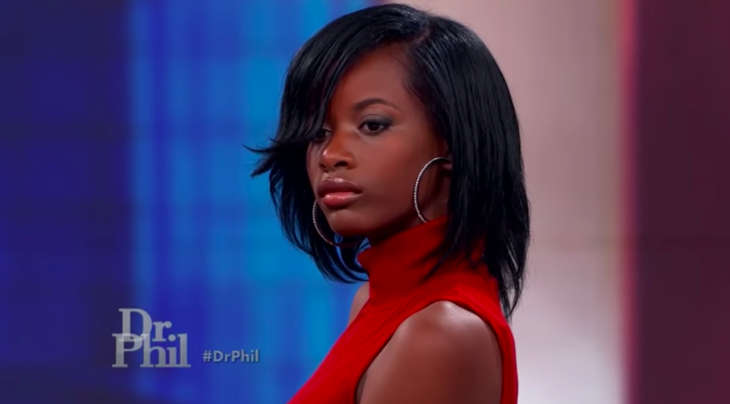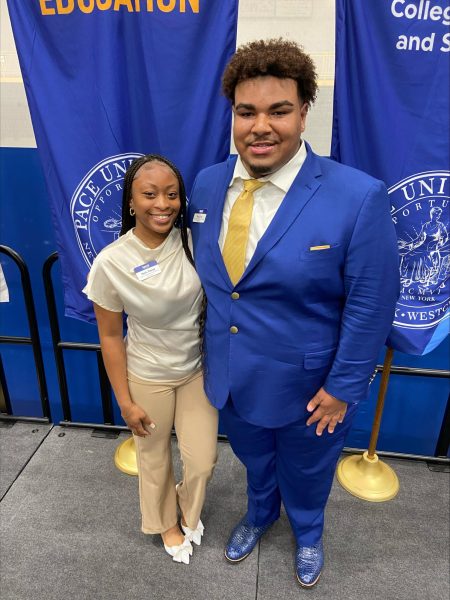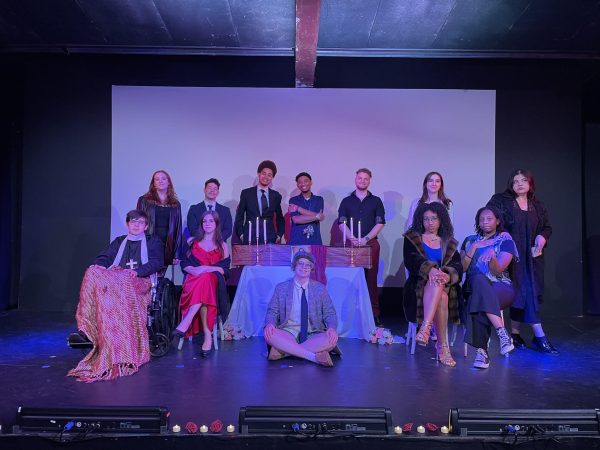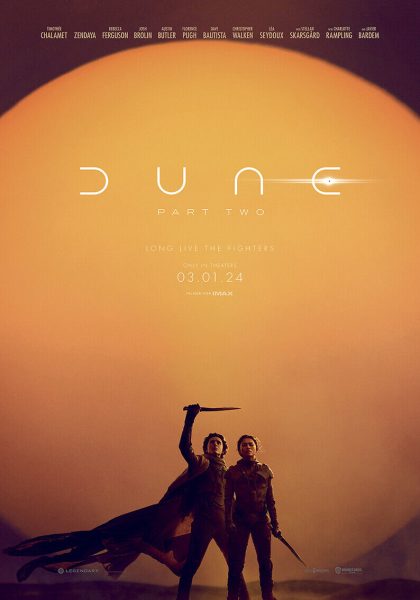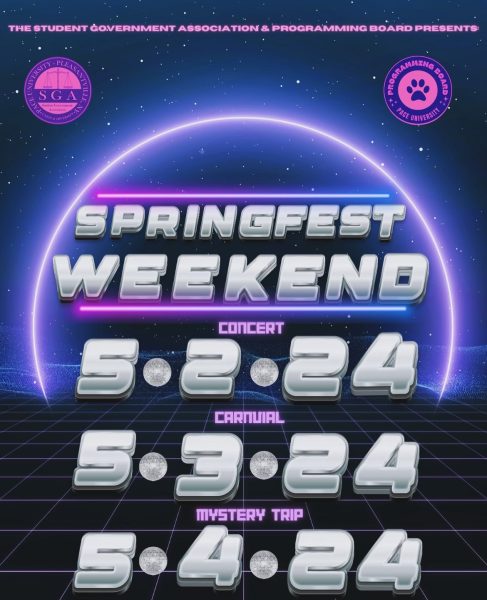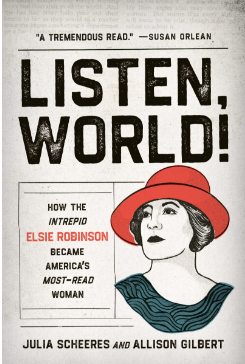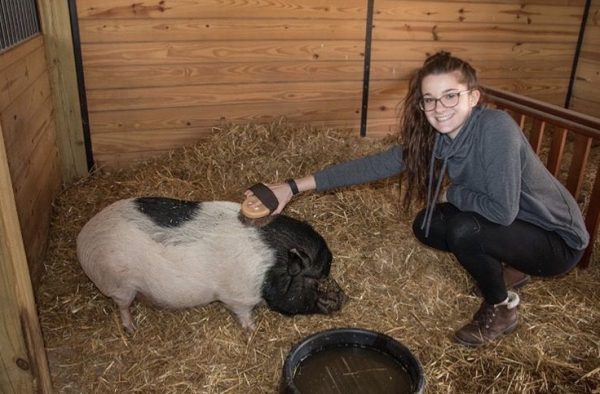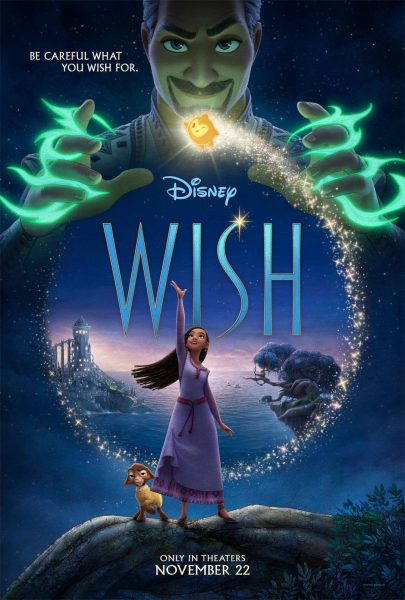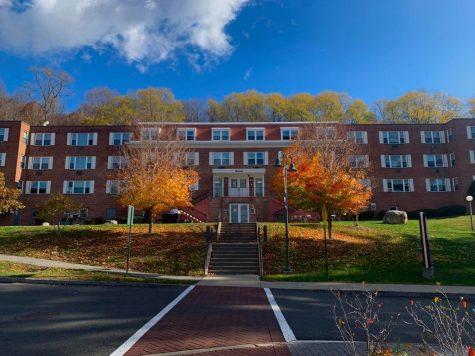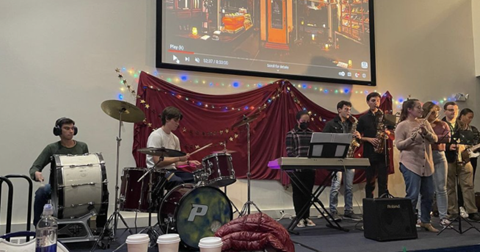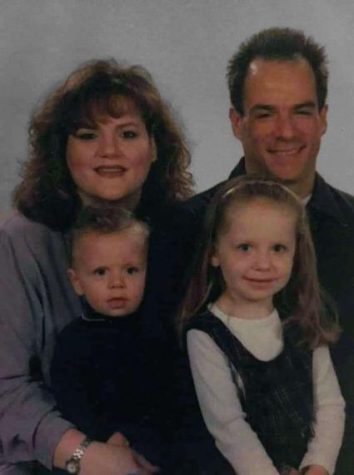Black and Not Proud: Examining Self-Hatred
October 28, 2018
There are different levels of tragedy in this world. Some are big, like when Jack froze to death after the Titanic sank. Some are small, like if Mr. Whiskers gets stuck in a tree. Others are just plain sad. Like, for instance, a black girl who strongly wants to be white.
Last Friday on CBS’ Dr. Phil, the tragedy struck. Treasure, who only went by her first name on the show, is a 16-year-old black girl attempting to convince her family, the audience, and Dr. Phil himself that she was, in fact, white.
According to Treasure, she is white because she “has naturally straight hair, her nose is not big, her lips are not big,” and, of course, she is not “ugly” which is, according to her, the most common feature of a black person.
The tragedy only got worse and more disturbing when the 16-year-old admitted she enjoyed hurling racial slurs to her black classmates and that she “had the Ku-Klux Klan on speed dial.” Treasure’s mother also recalled times when Treasure would dismantle her black dolls and make them “slaves to her white dolls.”
While the disgust of the audience was evident, Dr. Phil managed to hold his composure, schooling Treasure on the difference between race and ethnicity, while pointing out that she was “ignorant” of race matters.
Treasure’s degrading and outrageous comments about her own race both hurt and shocked viewers. Many said she was delusional and others thought the teen was putting on an act for attention.
Wow. That girl is delusional. I feel for her family, having to put up with that. Kick her out when she turns 18.
— gertrude whitzinn (@gertrudewhitzin) October 24, 2018
Attention seeker. So fake.
— Patsy Ramsey (@PatsyR62) October 24, 2018
Some users believed that Treasure’s self-hate of her race only gave White people a heightened sense of superiority, making racism more prominent.
How many white people feel the same as her?
*sees 1,000 white hands go up*
— His Sunshine 🥰 (@blaqboywonder92) October 24, 2018
Among those deeply affected by Treasure’s inner-hatred and rejection of black people was Pace senior, Toni Henderson.
Henderson is the president of the Black Student Union (BSU), a club on campus that embodies black pride. After hearing Treasure’s racial epithets, Henderson called it “saddening.”
“Honestly, it’s just saddening that there are still a lot of girls and boys out there still hating themselves in this point in time,” Henderson said. “I feel like America is a place where they do everything they can to institutionally demean black and multicultural people in general.”
“…for a lot of people, they choose three paths: they feed into the stereotypes of being black, poor, and oppressed, they hate themselves and try to conform to white standards, or they ignore it all together and love themselves,” Henderson said.
Henderson believed Treasure’s self-hatred stemmed from being “conditioned to believe those things about herself,” and that her life experiences contributed to her views.
While Henderson herself is black and proud, the senior recalled a point in her life when she wasn’t too happy with her race.
“I remember always being called ugly or [being] overlooked because of how dark skin [I was] and how “nappy” my hair was,” Henderson said. “My lips are really big and my personality is even bigger at times. So I remember briefly saying to myself, ‘I wish I was white.'”
Fortunately for Henderson, the BSU president said she grew out of that mindset with the help of her mother.
“After having a conversation with my mom, I [learned] that I just had to love and accept myself,” the senior said. “For the most part, I didn’t feel accepted or wanted in my own community. But I just had to ignore that and honestly love the skin I was in.”
Henderson said she would offer some words of wisdom to Treasure, which would revolve around research and a serious background -and reality- check.
“If I had to say something to her, it would probably be around the lines of maybe doing some research into the history and culture she’s trying so hard to reject,” the senior said. “I know a lot of people think being black or multicultural in America is the biggest disadvantage you could ever start out with, but I honestly think there is so much strength and beauty in our history and culture.”
“Historically we have been stripped of our rights, but that doesn’t strip away the raw talent and innovation that lays in our ethnicity,” Henderson continued. “I feel like it’s almost in our blood to be successful. We always find a way even in the face of oppression. And I don’t feel as if that’s something the label ‘being white’ can give you fully. If anything, it gives you a mask of fake power and strength instead of the values and characteristics that you’re born with. [Treasure] should want to take that in more than anything else and grow from it.”
When a child acts up, some immediately point to the parents, blaming their supposed lack of parenting skills for spawning such a bad seed. In the episode, Treasure’s mother admitted to making her children believe that their father was a white man. After he died, she revealed that their biological father was actually black. Due to this revelation, Dr. Durahn Taylor, who teaches a Culture/History of Black America course, believed that the late revelation about Treasure’s parentage contributed to her problems.
“[Her mother] made choices about what to share with her children and when [to], concerning the identity of their biological father,” Taylor said, ” and the fact that the White father they were raised under, before he died, was not, in fact, their biological father.”
Dr.Taylor offered the oldest saying in the book to Treasure: the truth shall set you free.
“To all this, I have only one comment: Jesus says in John 8:32 (ESV), ‘and you will know the truth, and the truth will set you free.'” Taylor said. “No one can know for certain what might have helped prevent Treasure from taking this path in her mind. Confronting truths, however liberating that action may ultimately be, can be an intense struggle.
In the wake of a tragedy, the victims need love, support, and maybe even a shoulder to lean on. In this case, the victim just needs a hard look at herself in a mirror.

